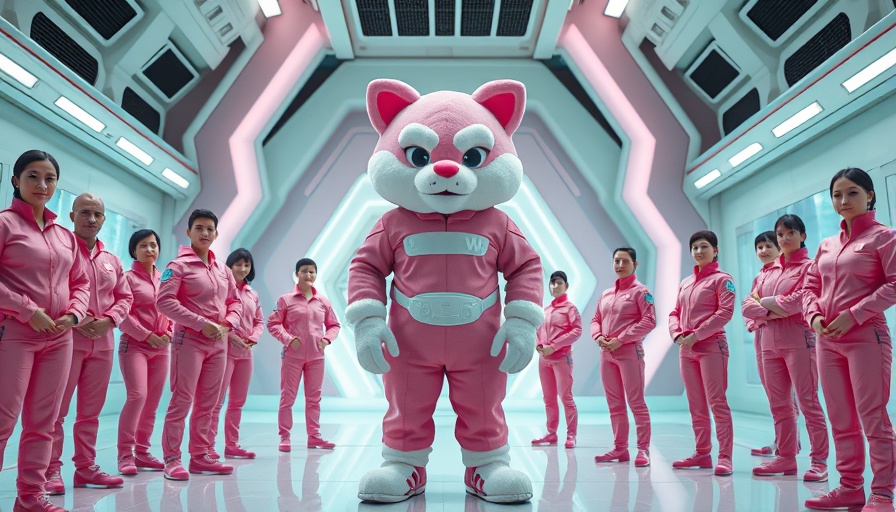
The Rise of AI in the Workforce and Its Impact on Employment
Duolingo has made headlines recently with its announcement to transition to an "AI-first" company, a shift that has sparked concerns about the future of jobs in industries that lean heavily on human creativity and skills. With the rise of artificial intelligence, many companies are now replacing contractors and entry-level positions with AI solutions. Brian Merchant, a keen observer of this trend, argues that Duolingo's actions are symptomatic of a broader AI job crisis, a phenomenon that seems to be unfolding before our eyes.
Understanding Workforce Changes: The Human Cost
What does this transition mean for the workforce? Duolingo has reportedly cut about 10% of its contractor workforce over the past couple of years, beginning with translators and then moving to writers. This pattern of job reductions isn't isolated to Duolingo alone. Instead, it's part of a larger narrative—one where companies prioritize cost-cutting measures over human employment. The push to minimize labor costs often leads companies to consolidate roles and embrace machine learning technologies, a decision that impacts countless workers across various industries.
The Implication of AI Job Losses on Recent Graduates
One poignant point raised by Merchant involves the rising unemployment rates among recent college graduates. Reportedly, this demographic is suffering as companies increasingly replace entry-level, white-collar positions traditionally filled by humans. Many of these positions are now being automated, depriving new entrants into the job market of crucial opportunities. Thus, the promises of technology and innovation come with risks that society must address.
Why the AI Job Crisis Matters to Local Economies
The implications of AI job losses extend far beyond individual companies. For communities, especially in the Great Lakes Region, where education and innovation often go hand-in-hand, declining job availability can lead to economic stagnation. Local entrepreneurs and innovators thrive on a workforce that feels secure in its employment prospects. When high-skilled jobs vanish, it diminishes the potential for robust economic activity and community well-being.
Counterarguments: The Silver Lining of AI Integration
It’s important to recognize that some experts argue for a balanced perspective on AI's impact. They propose that while technologies can eliminate certain jobs, they can also create new opportunities in entirely different sectors. Think of the rise of tech and programming jobs or even new fields that revolve around managing and directing AI technologies. Resistance to this change does not negate the need for adaptability and resilience from the workforce, which is crucial for progress.
Future Opportunities: Preparing for the Shift
As AI continues to revolutionize the workplace, there are actionable insights individuals can take to prepare for the future job market. Embracing lifelong learning, investing in skill enhancement, and seeking out roles that focus on human creativity and empathy could put individuals in positions of strength. Additionally, communities should encourage initiatives that promote skills training and education, ensuring that the workforce remains relevant amidst technological changes.
Community Stories: Resilience in the Face of Change
Throughout our homes and neighborhoods, there are countless stories of individuals adapting to change. Local organizations and grassroots initiatives are emerging to help bridge the gap between education and employment by providing resources, training, and advocacy for those affected by job disruptions. These urban heroes—a mix of educators, entrepreneurs, and nonprofits—come together reflecting the indomitable human spirit that persists through adversity.
What Can We Do?
The alarming trend of AI job cuts, especially in creative sectors, is undeniably a call to action for communities and individuals. By fostering discussions regarding AI’s impact, supporting local initiatives that aim to prepare the workforce for technological changes, and advocating for fair employment practices, we can mitigate some of the adverse effects caused by these transitions.
The AI jobs crisis raises significant questions about our preparedness for a future integrated with intelligent technology. Are we doing enough to address the impending changes? It is essential for each one of us to engage with these conversations and collectively steer our communities toward proactive solutions—even in the face of uncertainty, the strength of local connections, and grassroots efforts can guide us into a prosperous future.
 Add Row
Add Row  Add
Add 




 Add Row
Add Row  Add
Add 

Write A Comment